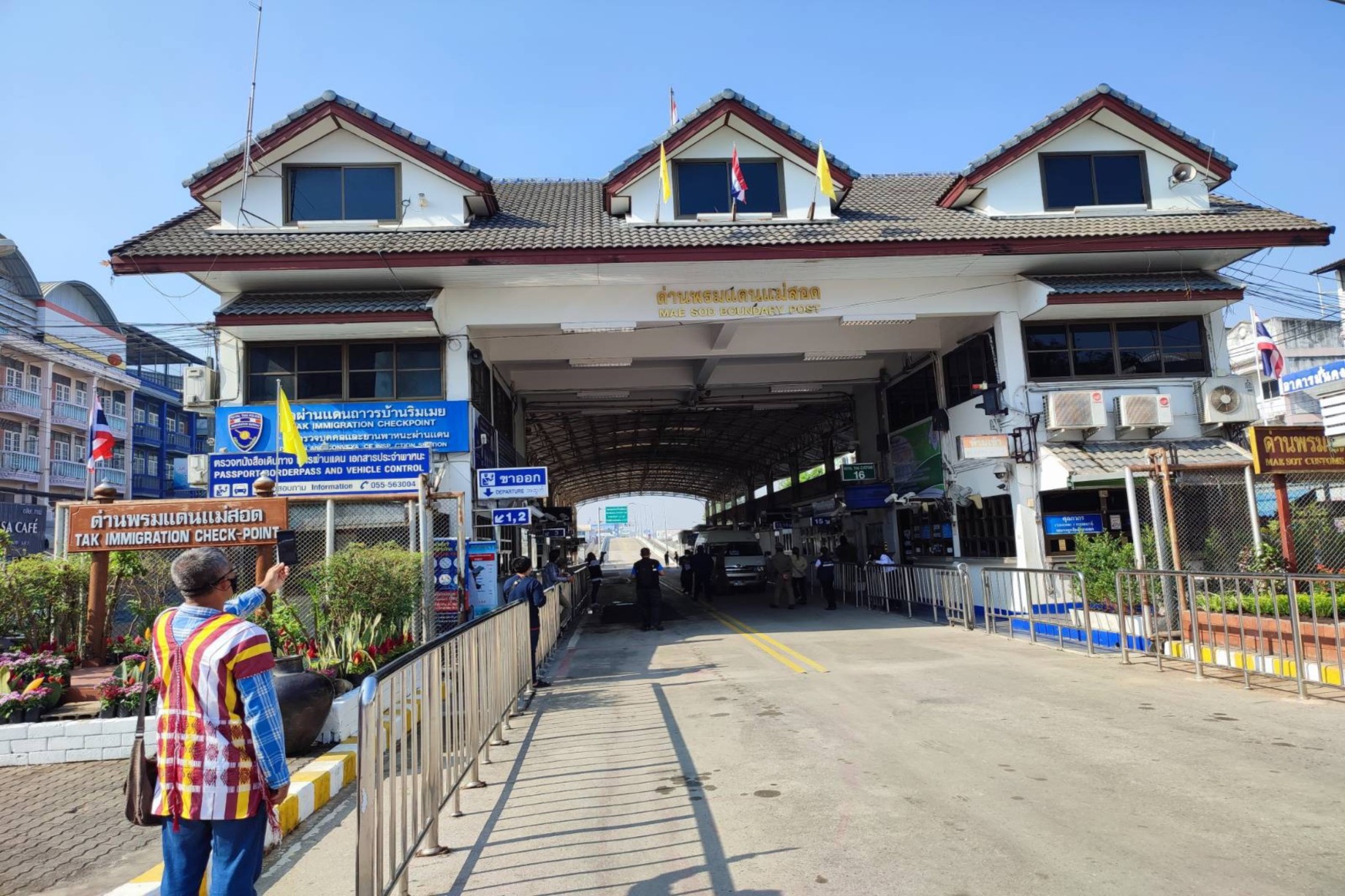
The Thai-Myanmar Friendship Bridge No. 1, linking the towns of Myawaddy in Karen (Kayin) State and Mae Sot in Thailand’s Tak Province, reopened on Thursday for the first time in three years.
Closed in 2020 due to the Covid-19 pandemic, the bridge is now open to small vehicles carrying vaccinated travellers, sources in the area told Myanmar Now.
According to Thai media reports, citizens of Myanmar who enter Thailand by crossing the bridge are only permitted to travel as far as a popular shrine located about 17km from the border.
Residents of Myawaddy are permitted to stay on the Thai side for up to one week, while other Myanmar nationals must return on the day of entry, sources in Myawaddy reported.

The one-week pass is issued only to those who can produce residency documents provided by immigration officials in Myanmar, the sources said, adding that the process usually takes two days.
The bridge, opened in August 1997, was for many years the main cross-border trade link between the two countries. It was traversed by an estimated 230,00 vehicles annually until a second bridge was opened in October 2019.
The Thai-Myanmar Friendship Bridge No. 2, which also crosses the Moei River just north of the older bridge, is used primarily by transport trucks and other heavy vehicles.
The newly reopened Friendship Bridge No.1 will operate daily from 6am to 6pm, according to a Thai Immigration officer.
The reopening comes despite ongoing clashes between regime and resistance forces in Karen State’s Kawkareik Township, which is part of Myawaddy District.
A day before traffic across the bridge was allowed to resume, an explosion was reported in the township on the Asia Highway, which crosses the bridge.
Despite the impact of the February 2021 military coup on Myanmar’s economy, the regime’s Ministry of Commerce claimed that, as of last October, bilateral trade with Thailand in the current fiscal year had grown by $366million over the previous year.
Around 44% of the $2.9billion in reported trade between the two countries in the first seven months of the 2022-23 fiscal year went through Myawaddy, the ministry reported.
While the reopening of border crossings is expected to further increase trade, the plummeting value of the kyat since the coup is likely to dampen demand for imports from Thailand.
The Thai baht, which was worth 46 kyat when the military seized power nearly two years ago, now fetches 63 kyat.



